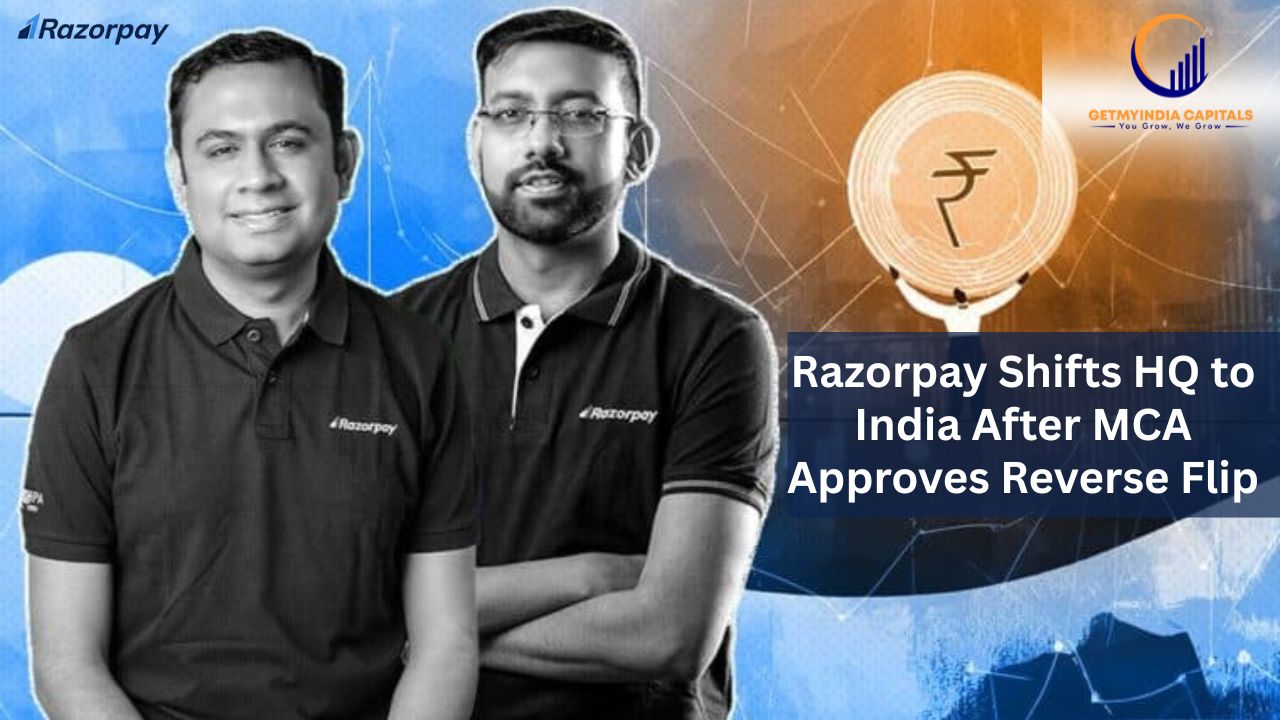Introduction
In a landmark move that underscores growing confidence in India’s regulatory and startup ecosystem, fintech major Razorpay has successfully completed its long-awaited “reverse flip,” transitioning its parent company’s domicile from the United States back to India. The move marks a strategic milestone for the Bengaluru-headquartered payments and banking platform as it gears up for a future initial public offering (IPO) in India.
The reverse flip was finalized following approval from the Ministry of Corporate Affairs’ (MCA) Regional Director (Southeast Region), effectively allowing the merger of Razorpay Inc. (the US-based parent entity) with Razorpay Software Pvt. Ltd., the company’s Indian arm. With this, Razorpay has officially shifted its global headquarters to India, completing a process that began over a year ago in May 2023.
“This isn’t just a structural shift; it’s a decisive vote of confidence in India’s economic future, positive regulatory environment, and the power of homegrown innovation,” said Shashank Kumar, Co-founder and Managing Director of Razorpay, in a statement. “India has always been our largest market. Today, I am proud to announce that it has also become our global headquarters.”
The Strategic Importance of the Reverse Flip
The reverse flip aligns with Razorpay’s long-term IPO aspirations and comes on the heels of the company converting into a public limited company in April 2025—a regulatory prerequisite for Indian stock market listing. The redomiciling effort was undertaken under new streamlined guidelines that allow overseas-incorporated companies to bypass the earlier, more cumbersome National Company Law Tribunal (NCLT) route. The updated framework enables faster processing through the Reserve Bank of India (RBI) and the MCA.
Notably, Razorpay’s move mirrors a broader trend among Indian unicorns. A growing number of startups such as Groww, Zepto, Dream Sports, and PhonePe have either completed or are in the process of executing similar reverse flips, motivated by the desire to tap into India’s capital markets and the increasing ease of doing business domestically.
High Cost, Higher Conviction
While the strategic benefits are numerous, the reverse flip hasn’t come cheap. Razorpay is reportedly liable to pay around ₹1,245 crore (approximately $150 million) in capital gains taxes due to the revaluation of shares during the jurisdictional shift. The tax is considered a cost of “coming home,” as shifting ownership from a foreign to a domestic entity triggers capital gains liabilities under Indian law.
Despite the significant tax burden, Razorpay views the move as a long-term investment in India’s burgeoning digital economy. The consolidation of its corporate structure in India is expected to simplify regulatory compliance, improve operational agility, and enhance transparency—a necessity for any company preparing for a public listing.
“Completing our reverse flip is more than a milestone; it’s a powerful signal of belief in India’s startup ecosystem and our commitment to building for Bharat,” Kumar noted on LinkedIn.
A Broader Industry Shift
Razorpay’s successful restructuring underscores a new chapter in India’s startup evolution. For years, many Indian startups chose to incorporate in the US or Singapore to attract foreign capital and avoid regulatory hurdles. However, with the Indian government now offering a more conducive regulatory framework and clear IPO guidelines, the narrative is shifting.
The change in sentiment is visible across sectors. Payment platform PhonePe repatriated its holding structure from Singapore to India in 2022, paying nearly $1 billion in taxes. Similarly, Groww completed its reverse flip in May 2024 and has filed confidentially for a domestic IPO. Flipkart, now owned by Walmart, has also received approval for a reverse flip in preparation for a public listing by 2026.
Industry experts believe that the Indian government’s efforts to streamline compliance and clarify tax rules are yielding tangible results. The 2024 amendment to eliminate NCLT approval for overseas companies merging into Indian entities has significantly reduced red tape and improved timelines for reverse flips.
Razorpay’s Growth Trajectory
Founded in 2014, Razorpay has emerged as one of India’s most prominent fintech firms. The company has raised approximately $742 million in equity funding from marquee investors such as Peak XV Partners (formerly Sequoia India), Tiger Global, Ribbit Capital, and GIC. Razorpay was last valued at $8 billion and processes about $180 billion in gross merchandise value (GMV) annually.
It holds an RBI-issued Payment Aggregator license and operates across a broad suite of fintech services. Its business lines include payment processing, payroll, and neo-banking via RazorpayX. Additionally, it offers payment orchestration tools to large enterprises, serving over 10 million businesses in India.
In FY24, Razorpay reported ₹2,500 crore in payments revenue and a net profit of ₹34 crore in the payments segment, though the overall business remains in the red. However, CEO Harshil Mathur has stated that the company is targeting overall profitability by 2026, reinforcing the brand’s focus on sustainable growth.
Looking Ahead
With its corporate headquarters now firmly rooted in Indian soil, Razorpay is positioning itself as a leading contender for a domestic IPO—potentially within the next two years. The reverse flip is not only a regulatory requirement but also a symbolic declaration of the company’s faith in India’s future as a global tech and financial hub.
As more Indian startups follow Razorpay’s lead and return home, the reverse flip phenomenon is poised to reshape the country’s startup landscape, bringing capital, innovation, and corporate governance standards closer to home.
GetMyIndia.com RaysVeda.com GetMyStartup.com LawCanal.com ABHAYRAY.COM ZinCob.com

